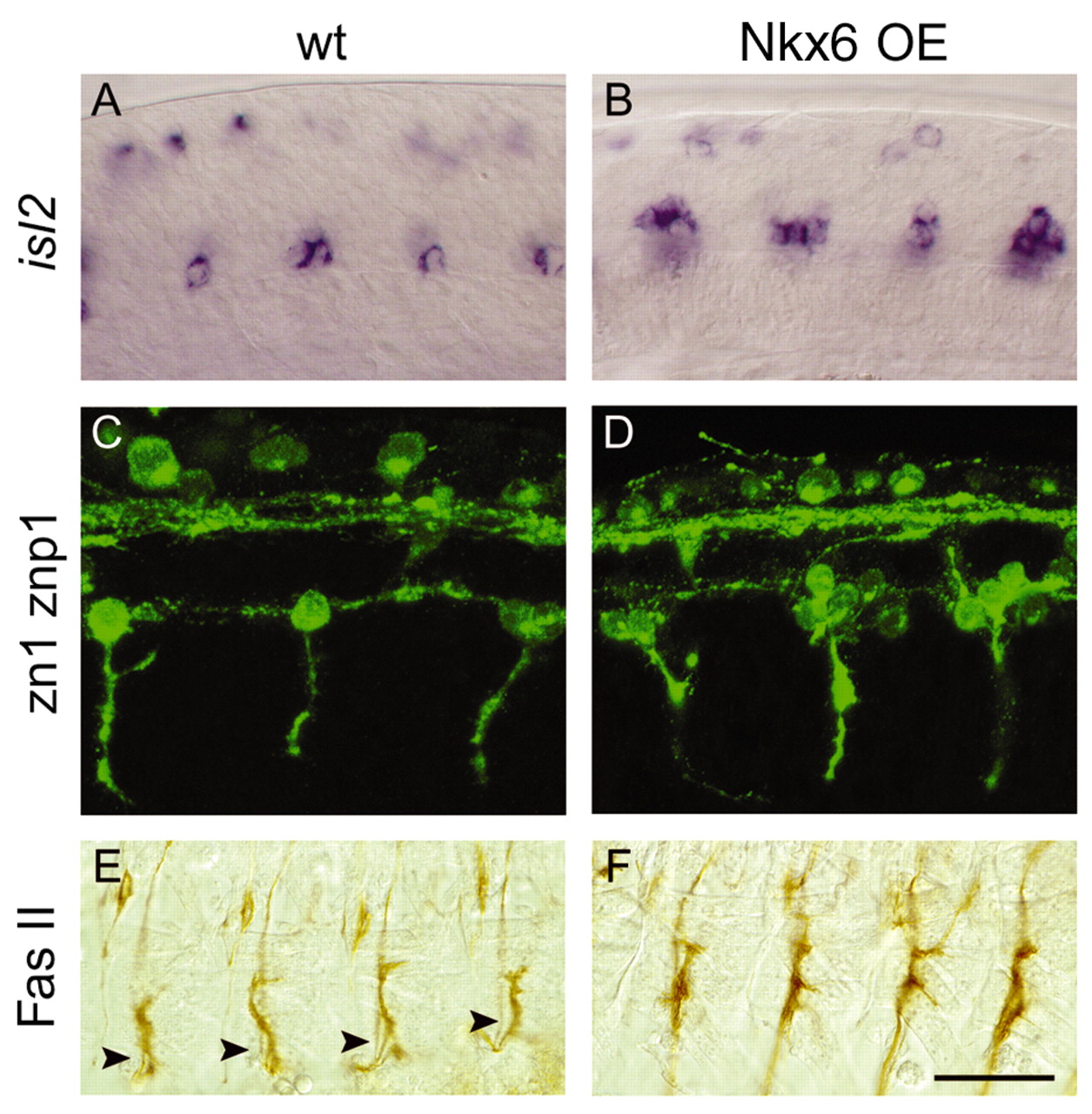Fig. 9 Nkx6 function is conserved between fish and flies. (A) isl2-positive CaPs and VaPs in an18 hpf zebrafish embryo. isl2-positive RBs are out of focus. Wild-type embryos have 1.3±0.7 isl2-positive motoneurons per spinal hemisegment (n=5). (B) 18 hpf embryo ectopically expressing Nkx6 (fly gene, Nkx6 OE) RNA with supernumerary isl2-positive cells (2.3±0.3 isl2-positive cells per hemisegment), similar to the phenotype caused by ectopic expression of zebrafish nkx6.1 RNA (compare with Fig. 7B). The number of isl2-positive motoneurons is significantly different (P<0.0003). (C) PMNs in 24 hpf wild-type embryo labeled with zn1 and znp1; RBs and several axon tracts are also visible. (D) 24 hpf embryo ectopically expressing Nkx6 (fly gene) RNA generates ectopic PMNs (compare with Fig. 7D). (E) Stage 17 wild-type fly embryo stained with Fas II. Arrowheads indicate SNb nerves. (F) sca>Nkx6.1 (fish gene) fly embryos with visibly thicker SNb nerves (88%, n=42 hemisegments). (A-D) Lateral views of zebrafish spinal cord. (E,F) Dissected fly embryo musculature. Scale bar: 50 μm for A,B; 33 μm for C-F.
Image
Figure Caption
Figure Data
Acknowledgments
This image is the copyrighted work of the attributed author or publisher, and
ZFIN has permission only to display this image to its users.
Additional permissions should be obtained from the applicable author or publisher of the image.
Full text @ Development

